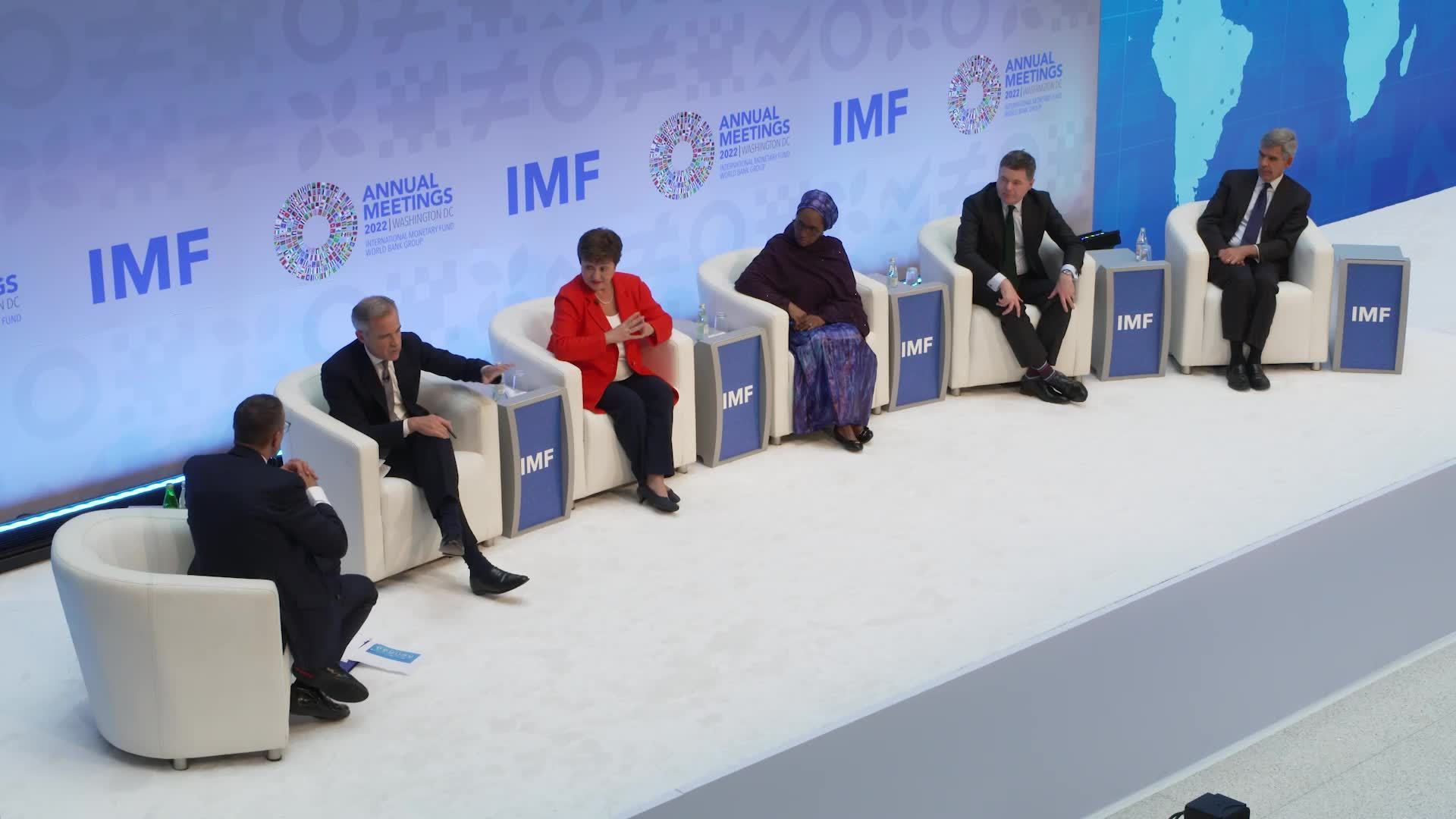Key leadership figures debated the global economy on Thursday afternoon, moderated by CNN Anchor Richard Quest. Among the main topics for debate was the need for institutions to work together to achieve a cohesive growth strategy and reduce inflation.
IMF Managing Director Kristalina Georgieva clarified that her outlook for 2023 is that things will get worse before they improve.
“My phrase was the worst is yet to come. Do you want me to explain why I said that? Do you want me to explain why I said that? Because rates have been going up, but they're yet to bite. They are still going up some more. And the impact of higher rates we start feeling with some lack,” said Georgieva.
In reference to the situation in the UK, Mohamed El-Erian, President of Queen’s College, Cambridge University, blamed policymakers.
“Monetary and fiscal policy need to work together, and not just at the domestic level but also globally, that we have a situation now where each country is self insuring against bad outcomes and the overall result is suboptimal. But there's a big issue here is that unfortunately, unfortunately, policymakers have amplified volatility rather than manage the volatility. We've seen this in the UK. The last bout of volatility is all from the policymakers,” said El-Erian.
Mark Carney, UN Special Envoy for Climate Action and Finance also highlighted the situation in the UK, emphasizing the importance of institutions.
“All of us, all of us are operating in a different risk environment. And mistakes will be punished. And that's true for any country. So that's the first thing. The second is, yes, instance, in that environment, institutions matter. The transparency, the guidelines, the restrictions that come with institutions help guide both monetary and fiscal policy so they matter. Thirdly, the numbers need to add up, and that goes back to the second point and the first point. And then the next point is that because we're in a world where we've had a series of supply hits and we'll have more, you need a cohesive growth strategy. A growth strategy has to be comprehensive,” said Carney
Zainab Ahmed, Nigeria Minister of Finance, said that Nigeria’s loans needed to be stretched to provide more fiscal room while the country is trying to improve it’s economic position.
“The market cost is too high for us, so we cannot even explore the markets in the near future. And also because inflation is going up and is going to stay up for longer on debt, service obligations and foreign currency are increasing. And what we decided to do is not to wait for it to happen. We have to start looking at how do we better manage our liabilities, for example, our domestic liabilities. We have been able to shift our loans from short tenures, to medium and longer-term tenures. We have to do the same thing for our international borrowings as well. Bilateral loans and even some of the concessional loans that the periods could be stretch should be stretched to give us more fiscal room while we are working to increase revenue to improve on our revenue to debt service,” said Ahmed.
Paschal Donohoe, Ireland Minister of Finance, addressed the situation in Ukraine and said that Russia’s war has amplified the need for renewable energy.
“As a finance minister, a community within the European Union were also clear that not only is part of the answer to the need for a new growth model, how we supercharge where we are with renewables, but it's also part of the security model for Europe for decades ahead. And if I look at the priorities that governments have, investment in lower carbon technologies, investments in the renewables hasn't been altered at all by the effect of the war, in fact, the commitment to it has deepened” said Donohoe.
For the full debate: https://IMF.org/GlobalDebate

